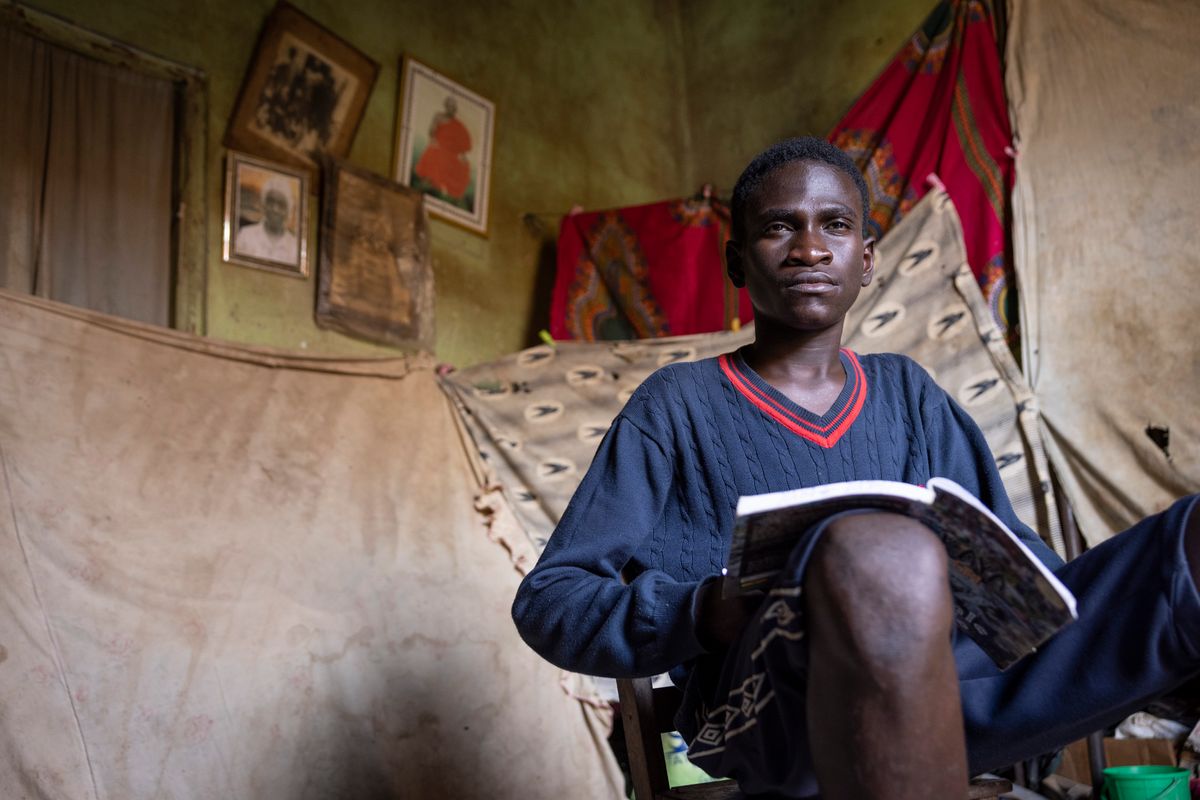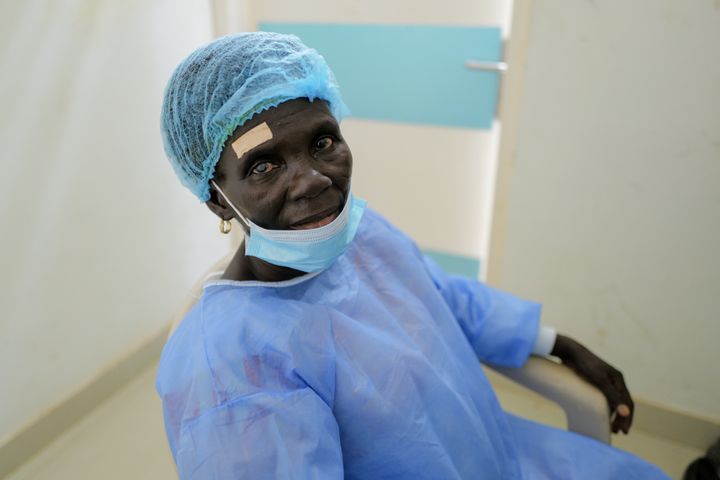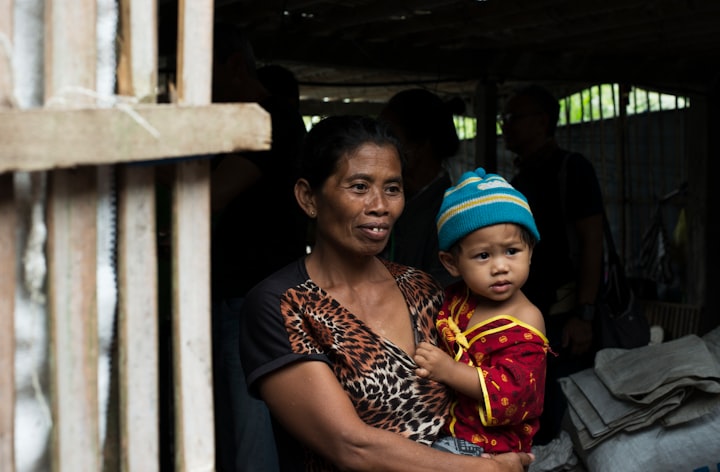Empowering the Youth: Education & Eyecare

In a world that constantly emphasises the importance of education and empowerment, it's disheartening to realise that there are still many barriers that prevent children from reaching their full potential. One such barrier, often overlooked, is the issue of visual impairment. Blind children living in low-income countries face numerous challenges, including limited access to sufficient education. While some progress has been made in certain regions, there is still a long journey ahead to support the educational needs of blind children.
Visual impairment is one of the most common disabilities affecting children worldwide. Many of these children simply require access to eyeglasses, corrective surgery, or other forms of treatment. Unfortunately, in areas with limited access to healthcare services, these children are automatically disenfranchised from education and social activities.
In more developed countries like the United States and the United Kingdom, systems are in place to provide children with the necessary vision care they need. However, this is not the case in many low-income countries, particularly in regions like South-East Asia and Africa. Here, children with visual impairments face numerous obstacles when trying to attend school and learn.
Both the absence of schooling and the challenges faced in school can significantly hinder a child's ability to learn and grow. Schools in these regions often lack the resources and structure needed to create a safe learning environment for blind children. As a result, whether these children attend school or not, they tend to fall behind their peers. In many cases, governments are unable or unwilling to invest in new educational systems, leaving visually impaired children with limited opportunities.
Despite these challenges, there is hope on the horizon. Organisations worldwide are working diligently to create solutions for these young individuals. One significant step forward was taken in 2018 when the Commonwealth made a strong commitment to provide access to quality eye care for all. This marked the first time that heads of state pledged their support for eye health on such a large scale. This initiative encouraged the United Nations to create a resolution that further supports the development of eye care.
Building upon these efforts, the Commonwealth Coalition has called on education ministers to collaborate with health professionals and ministers to introduce eye tests and accessible treatments across the Commonwealth by 2030. This ambitious goal could have a profound impact on the lives of countless visually impaired children around the world.
It's crucial to recognise that the majority of the world's blind youth live in impoverished regions of Asia and Africa, where eye specialists are in short supply. Organisations are beginning to address this issue by training doctors in new methods to treat needless blindness in developing nations. However, there remains a critical shortage of eye care professionals in many areas, highlighting the urgency of the situation.
To truly empower the youth, especially those with visual impairments, it is essential to implement programmes within communities and schools to improve their lives. This change must begin with governmental bodies and organisations taking action before it's too late.
One such organisation, the Tej Kohli & Ruit Foundation, has been tirelessly providing essential eye care services to neglected and underprivileged communities in Nepal and Bhutan. This foundation recently expanded its efforts to Ghana through a collaboration with HCP Cureblindness. Their work has already touched the lives of many, including 21-year-old Prince.
Prince, like many other visually impaired children, faced significant challenges in his pursuit of education. He struggled with subjects like mathematics and science because he couldn't see the blackboard clearly. This visual impairment limited his ability to learn and participate fully in school.
Prince's family lived in poverty, and his mother, the family's breadwinner, worked tirelessly to sustain them. Despite her efforts, they had no savings to rely on. Prince's dreams of becoming a journalist seemed distant, especially since he had been living with cataracts since birth. Without treatment, he could become permanently blind.
Fortunately, a screening team arrived in Prince's village, preparing for an outreach camp at the Eastern Regional Hospital. After undergoing the necessary checks, Prince was invited for surgery the following week. This camp, organised in collaboration with HCP Cureblindness, the Eastern Regional Hospital, and the Tej Kohli & Ruit Foundation, aimed to cure needless blindness.
Dr. Sanduk Ruit, co-founder of the Tej Kohli & Ruit Foundation, performed Prince's surgery. Known as the "God of Sight" for his work in curing blindness across the developing world, Dr. Ruit has been a beacon of hope for many.
The surgery was successful, and the next day, Prince's patches were removed. He couldn't believe the result—his vision had improved tremendously, and he was cured of blindness. Convinced of the effectiveness of the surgery, Prince was willing to undergo the procedure on his other eye as well.
Today, Prince lives a life free from needless blindness. His story is a testament to the transformative power of accessible eye care. However, Prince's story is not unique. There are millions of individuals across the developing world who continue to suffer from needless blindness because they cannot afford or access treatment.
The Tej Kohli & Ruit Foundation is on a mission to cure at least 500,000 cases of needless blindness by 2030, working alongside organisations like HCP Cure Blindness, the Eastern Regional Hospital, and the Tilganga Institute of Ophthalmology. Their efforts not only restore sight but also contribute to community regeneration by enhancing job opportunities and addressing the United Nations' fundamental Sustainable Development Goal of eradicating extreme poverty globally.
Empowering the youth involves addressing not only educational needs but also healthcare barriers, especially for those with visual impairments. By supporting initiatives that provide eyecare services and access to treatment, we can create a brighter future for countless children like Prince who dream of a better life, free from needless blindness and full of educational opportunities. Let us rally behind these organisations and demand change from governments and institutions to make this vision a reality before it's too late. Together, we can pave the way for a more inclusive and equitable world for all children.




Comments ()